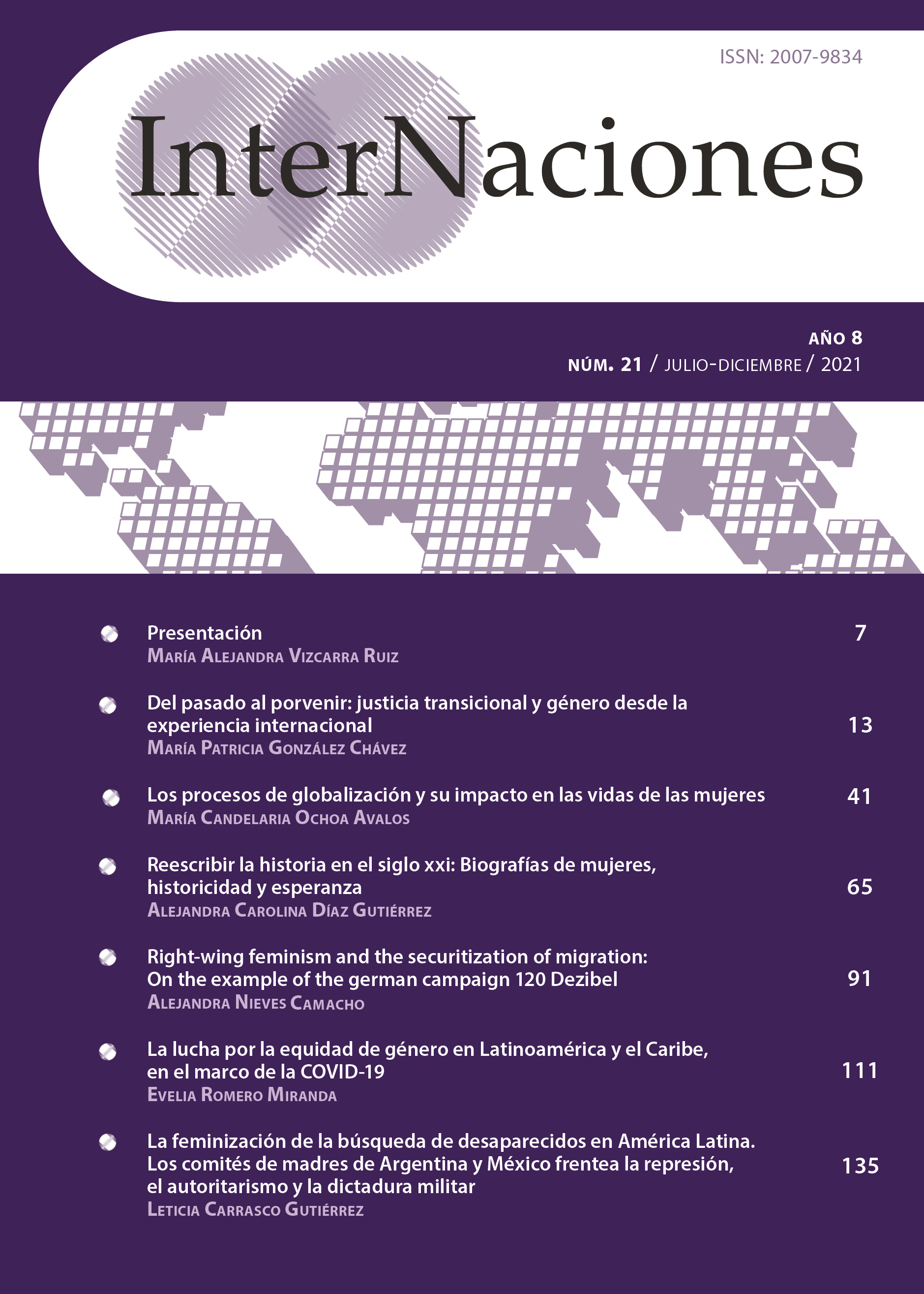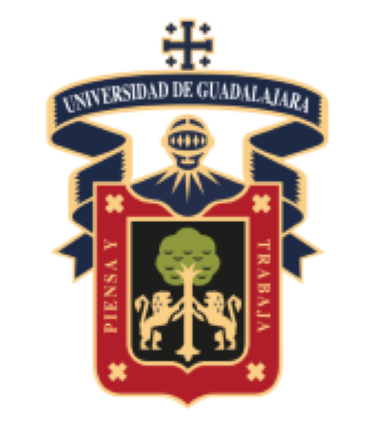Processes of globalization and their impact on women's live
DOI:
https://doi.org/10.32870/in.vi21.7191Keywords:
globalization, Human Rights, social justice, equalityAbstract
I begin with a phrase by Chusa Lamarca Lapuente: globalization is no less than the extension of capitalism to a global scale. I am interested in developing three key ideas which are presented in three sections. First, the effects and defects of globalization in the lives of women, in which I propose that which has been said and is known: globalization is a process that has been driven by international organisms such as the International Monetary Fund, the World Bank, the World Trade Organization, the G-7, the World Economic Forum and the OECD. The imposed model has been more market, less State, and this process can be explained only as an extension of capitalism. Women have been the most affected by this process, which has had negative impacts on their lives, because it is they who have dealt with the shock of the retreat of the State in family well-being. In the second section, which I have named Women’s Human rights in a global era, I propose to use precisely two of the globalization processes boost national and international networks which aim to/to bolster the claim over women’s rights, the acknowledgement and the guarantee of them being respected. Finally, I suggest that gender equality is not possible if it isn’t proposed as a global action. All women’s rights must be guaranteed in these processes of capitalist-patriarchal market. For this reason, States must break the centrality of the market in order to generate social justice with a gender perspective.Downloads
References
Benería, Lourdes. Mercados Globales, género y el hombre de Davos. Revista de estudios de género La ventana núm. 10. Guadalajara, México, 1999.
Búster, Ximena (Ed). La mujer ausente. Derechos humanos en el mundo. Isis Internacional, Chile, 1996.
Elejabeitia, Carmen. Feminización de la pobreza. En Revista Mujer. Madrid, 1996.
Franco, Jean. La globalización y la crisis de lo popular. Revista Nueva Sociedad núm. 149, 1997.
GIRE (2008): Paulina, justicia por la vía internacional. México.
Valdivieso, Magdalena: Globalización, género y patrón de poder, en Género y globalización. Alicia Girón [coordinadora]. CLACSO, Argentina, 2009.
Guzmán Stein Laura y Gilda Pacheco Oreamuno (Comps). Estudios básicos de derechos humanos IV. IIDH, Costa Rica, 1997.
Harcourt, Wendy y Arturo Escobar. Mujeres y política de lugar. Prigepp, 2002.
Klisberg, Bernardo. La condición de la mujer en tiempos de globalización. Prigepp, 2002.
Lamarca Lapuente, Chusa: Ella para él, él para el estado y los tres para el mercado: Globalización y género. http://www.hipertexto.info/desglobaliza.
Lasagna, Marcelo. La gobernabilidad democrática en la era de la globalización: una perspectiva latinoamericana. Prigepp, 2002.
López, Cecilia. ¿Qué tipo de desarrollo se debe financiar?. REPEM, 2002.
Lovera, Sara. Cuarta Conferencia Mundial sobre la Mujer. Carpeta para periodistas. CIMAC, México, 1995.
Maier, Elizabeth. ¿A poco las mujeres tenemos derechos? México, 1990.
Ochoa Avalos, María Candelaria: Los límites de la pobreza, desigualdad y exclusión de las mujeres jefas de familia. Universidad de Guadalajara, 2009.
Stanford Friedman, Susan. Globalización y teoría social feminista: identidad en movimiento. Prigepp, 2002.
Thwaites, Mabel y José Castillo. Poder estatal y capital global: los límites de la lucha política. En Tiempos violentos. Neoliberalismo, globalización y desigualdad en América Latina, Atilio A. Boron (Et. al) Editorial Eudeba.
Valdivieso, Magdalena (2009). “Globalización, género y patrón de poder”. En Alicia Girón (Coord.). Género y globalización. Argentina: clacso.
Downloads
Published
How to Cite
Issue
Section
License
Copyright (c) 2021 University of Guadalajara

This work is licensed under a Creative Commons Attribution-NonCommercial-ShareAlike 4.0 International License.
CC BY-NC-SA 4.0 https://creativecommons.org/licenses/by-nc-sa/4.0/



























